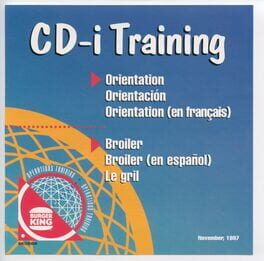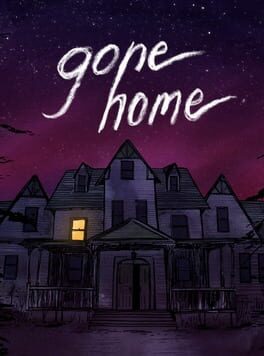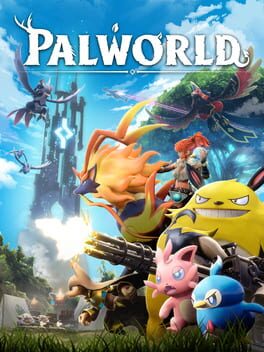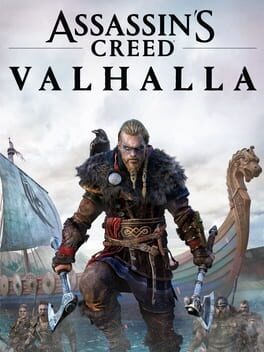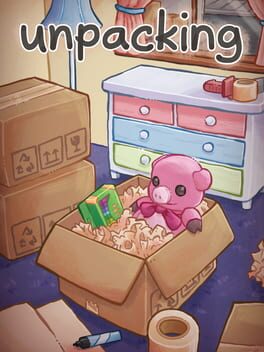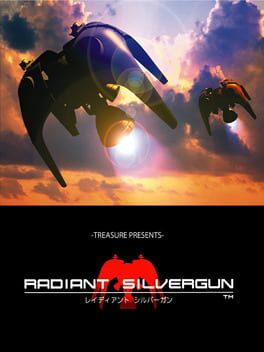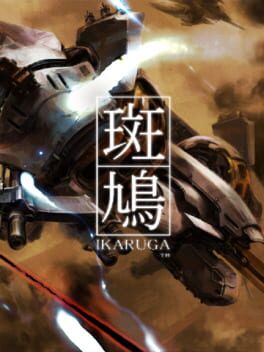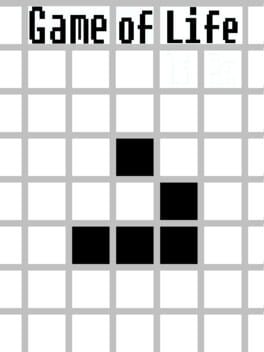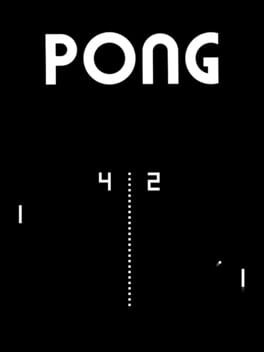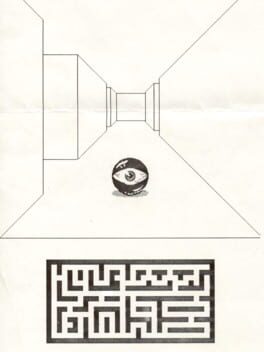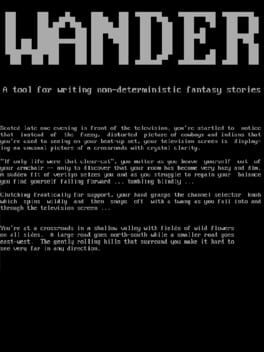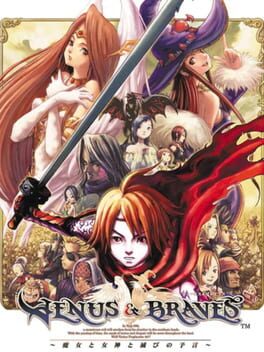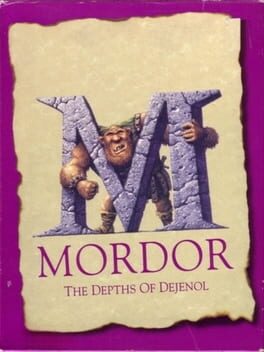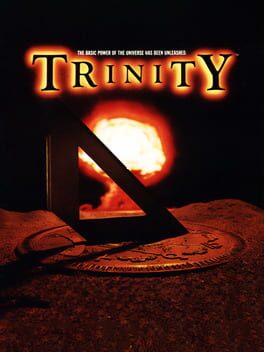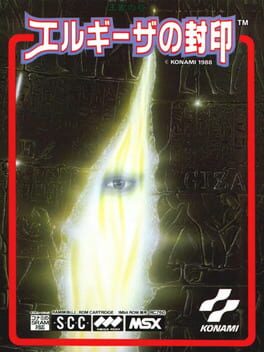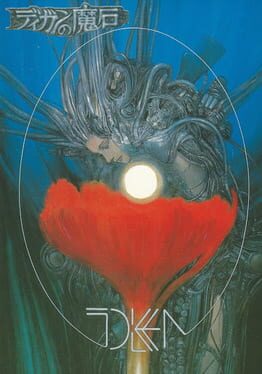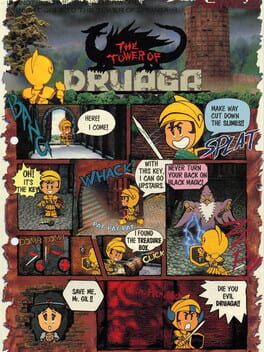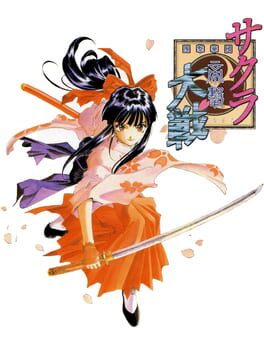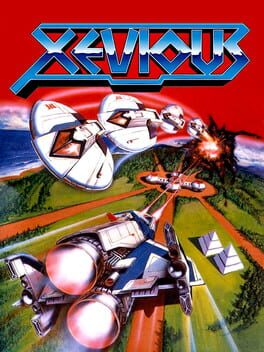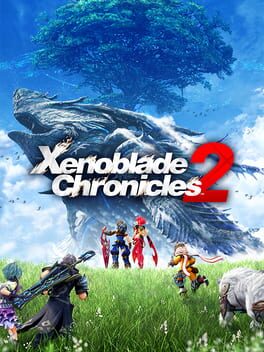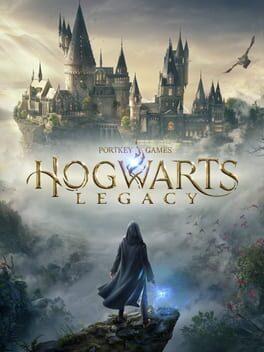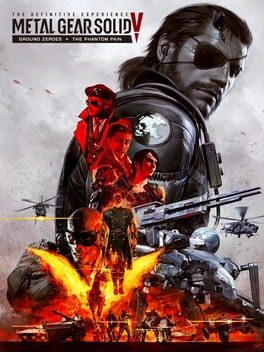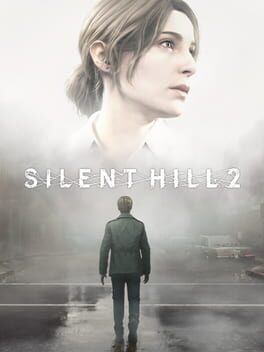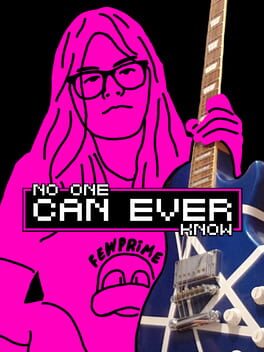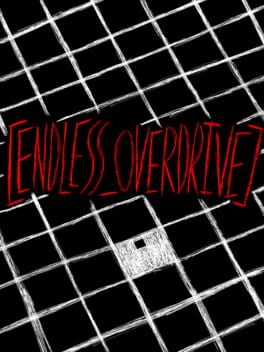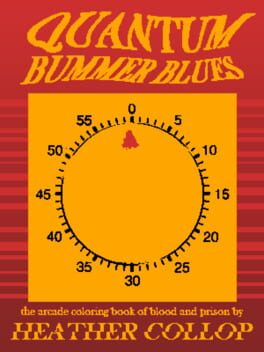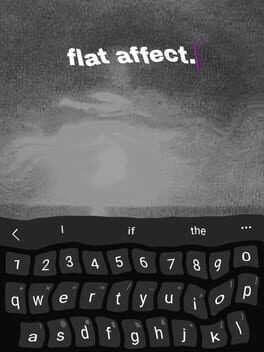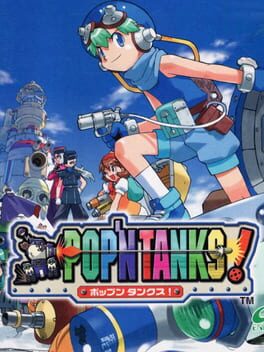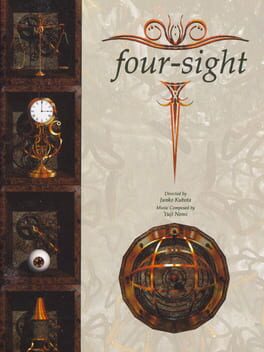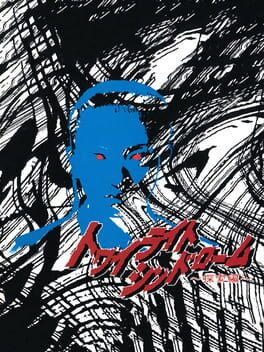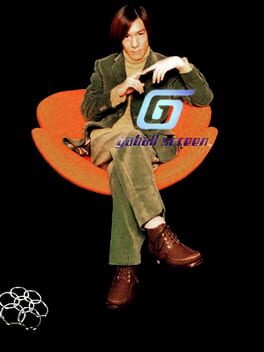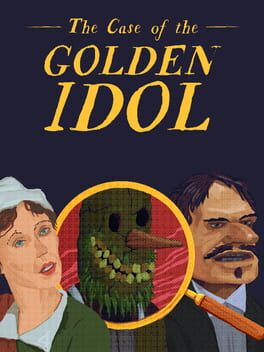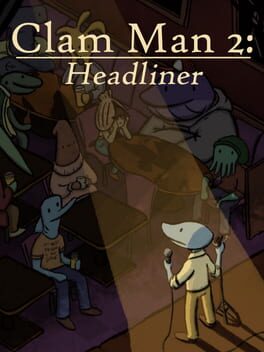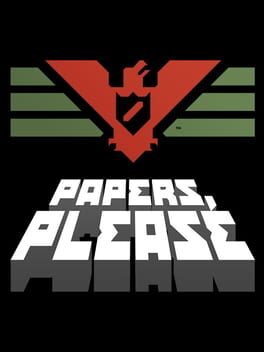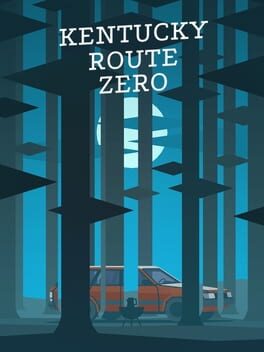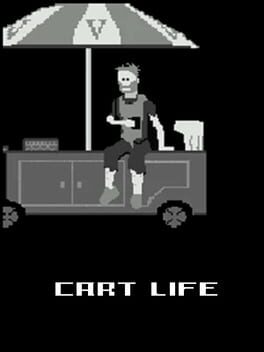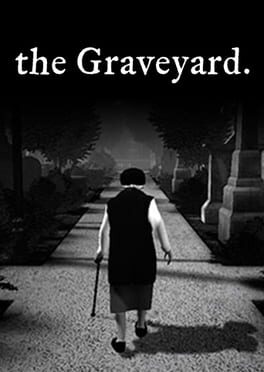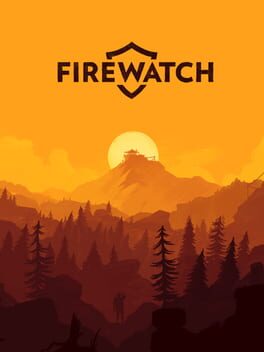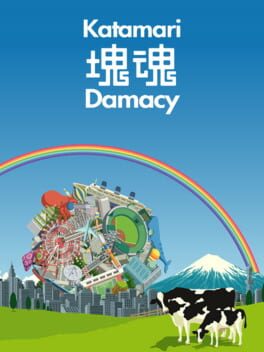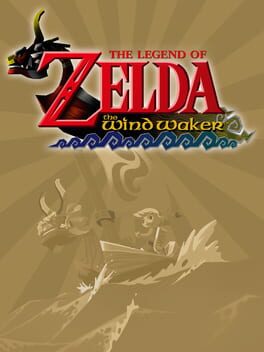clams
13 reviews liked by clams
It is easy to be dismissive. Be it art, people, food, events, the rapid, continual pace of consumption necessitates the compartmentalisation and categorisation of happenings. One can be dismissive in the positive and in the negative. The complex emotions elicited through our lives fade as quickly as they arise. Perhaps it is a consequence of language, an inability to express the phenomenon of experience. A meal's interplay of tantalising nostalgic aroma and comforting warmth in the belly is, for most of our lives, recalled as good - if it is remembered at all. A film is so bad it's good, some self-fulfilling label that sets expectations and ebbs the need for analysis of artistic merit and failure. A book is well-written. Your ex is a bitch. Last Christmas was good.
In the new hyperactive mode, wherein consumption happens largely for the sake of consumption, categorisation happens more readily, more aggressively, less critically. A director is washed. Your favourite is 🐐-ed. Films are kino or coal. Aesthetics are reduced to haphazard strictures, art pinned as frutiger aero, frasurbane, girlypunk neo-Y2K vectorheart nu-brute. Games are flavour of the month, kusoge, kamige, kiige, bakage, normiecore. Bring something up, and everyone has an opinion, a rote repetition of regurgitated refuse. Exhibit passion for that outside the zeitgeist, and be lambasted. Convey discontent with the beloved, be accused of poor media literacy. Are we even partaking of that which we parade around, or are we playing an elaborate game of telephone?
Even Burger King Orientation CD-i Training cannot escape unharmed. A wave of ironic praise and genuine befuddlement at why this exists, why it is revisited. One must be seeking attention for having such a quirky thing on their profile. It is impossible that it is enjoyed on a deeper level, as a response to a wider fascination, as a dive into historical (non-)import. The new hyperactive mode intentionally seeks signifiers which mark the self as interesting. An intentional facade which begs it won't be scrutinised.
But just because you have constructed this mask does not mean we all wear it. And perhaps I am being dismissive of your own thoughts. The truth of the matter is you don't care what I think, or why I feel a certain way. And to be fair, I feel the same animosity towards you. We are strangers at the conflux of comparison of preference.
I am filled with a genuine glee when I 'play' Burger King Orientation CD-i Training, but maybe it is best I keep the reasons to myself, as with so much else.
After all, you care not for what I think, so what is the difference if those thoughts are no longer laid bare.
In the new hyperactive mode, wherein consumption happens largely for the sake of consumption, categorisation happens more readily, more aggressively, less critically. A director is washed. Your favourite is 🐐-ed. Films are kino or coal. Aesthetics are reduced to haphazard strictures, art pinned as frutiger aero, frasurbane, girlypunk neo-Y2K vectorheart nu-brute. Games are flavour of the month, kusoge, kamige, kiige, bakage, normiecore. Bring something up, and everyone has an opinion, a rote repetition of regurgitated refuse. Exhibit passion for that outside the zeitgeist, and be lambasted. Convey discontent with the beloved, be accused of poor media literacy. Are we even partaking of that which we parade around, or are we playing an elaborate game of telephone?
Even Burger King Orientation CD-i Training cannot escape unharmed. A wave of ironic praise and genuine befuddlement at why this exists, why it is revisited. One must be seeking attention for having such a quirky thing on their profile. It is impossible that it is enjoyed on a deeper level, as a response to a wider fascination, as a dive into historical (non-)import. The new hyperactive mode intentionally seeks signifiers which mark the self as interesting. An intentional facade which begs it won't be scrutinised.
But just because you have constructed this mask does not mean we all wear it. And perhaps I am being dismissive of your own thoughts. The truth of the matter is you don't care what I think, or why I feel a certain way. And to be fair, I feel the same animosity towards you. We are strangers at the conflux of comparison of preference.
I am filled with a genuine glee when I 'play' Burger King Orientation CD-i Training, but maybe it is best I keep the reasons to myself, as with so much else.
After all, you care not for what I think, so what is the difference if those thoughts are no longer laid bare.
Gone Home
2013
The soul living in this house, formed through the memories we gave it. Stormproof mementoes in it's decade old interior, attached with only the strength of our attachments.
Haunted by no one, only by a feeling, by inevitable change, you can only see clearly once it's to late. Things will transform or disappear, while you aren't looking at them and as you turn back you can only make out their silhouette in the distant fog.
Not the ghosts of past lives, the ghosts of our passing lives. We allow them to wipe the memories of their faces, of who you once were, of who I once was, of all the other's and of the people we wanted to be.
Creaking floor boards sound in your voice as I try to move on.
The Heavy rain keeping me trapped inside whispers our favourite song.
The hum of the waterboiler, cascading through pipework tuned the cadence.
I haven't just missed you, I have also missed seeing you become the person you are now.
Cardboard boxes full of my old stuff in the closet of the still warm guest room, closed shut because they barely reveal anything about anyone anymore.
A single essay you wrote in elementary tells me more about you then all childhood toys combined.
The flickering bulb in the kitchen still burning through it's life even though mom always told you to not leave on all the lights. Developed and unselected photographs left hanging on the line in your dark room, because the memory on them still shines bright enough to feel no need to take them along or maybe the best of them are somewhere else with you now. Maybe you never took them down for me, so can have an Image of your truest self, you want me to know is happy.
As a hopeless romantic, melanchoholic and gamer who doesn't believe the medium needs "real mechanics" to reap it's full potential of interactive story telling, the simple conveyance of that feeling, after living your own life for the first time and a soon, bitter-sweet realisation will hit that everyone else's has also moved on, isn't just more than most games are able to make me feel, it slit my heart into two pieces.
The feeling of sand slipping through the throat of my hourglass, makes swallowing hard like crying.
Or all the other themes cementing this and spaming my cry button.
First love. A deadline on it. Fighting against life's intention to send you down different, distant directions. The undeserved struggles of queerness. Sisterhood. Siblinghood. A family slowly drifting apart, willingly and unwillingly. Being replaced in your job or threatened to be if you don't try to fit in more.
All tied together so effortlessly in this house.
And as a forum-smart Punk, I adored the mixtape of references used to paint angsty teenage rebellion.
All the little nods to female punk bands, Riot Grrrl music and zines, Bratmobile and Heavens to Betsy on the cassettes or Portland local Deep cuts I would have never known, like The Youngins. Buttons with Band names like my beloved The Slits X-Ray Spex, Patti Smith. Nineties Nostalgia I would find while rummaging through my uncles old stuff to steal and repurpose it. Groove Magazin, Fucking magic eye pictures, even written out combos or cheat codes for Videogames, niche board games nobody ever knew how to play, that one very specific "I want to believe" poster with a green-lit UFO on it.
Or the image of the embarrassing, weirdo dad it paints.
Dedecating his life to JFK conspiracies, writing a trilogy of fan-fiction about it, listening to the Dave Brubeck Quartet and downing Whiskey, all while the attempt at getting into James Joyce collects dust in the cellar. I could go on for hours with these reference-listing reductive redundancies, but I'll just stop myself, the game deserves better than just rattling off all the cool Pop-Culture stuff, which I think are cool. Maybe I should've just left that out completely tbh, but I want some of you to check out these cool female/female-lead Punk bands at least.
I'll just end this write up with this quote, lifted from the Game and shortened a bit.
"The readers want to hear about the quality and value of the hardware, not ruminations.."
Piss off if you unironicly want to read reviews like that. Let that do IGN, A.I. or whatever.
Form your own opinions about the quality and value of the art you engage with and let the art form you.
Just play Gone Home.
Haunted by no one, only by a feeling, by inevitable change, you can only see clearly once it's to late. Things will transform or disappear, while you aren't looking at them and as you turn back you can only make out their silhouette in the distant fog.
Not the ghosts of past lives, the ghosts of our passing lives. We allow them to wipe the memories of their faces, of who you once were, of who I once was, of all the other's and of the people we wanted to be.
Creaking floor boards sound in your voice as I try to move on.
The Heavy rain keeping me trapped inside whispers our favourite song.
The hum of the waterboiler, cascading through pipework tuned the cadence.
I haven't just missed you, I have also missed seeing you become the person you are now.
Cardboard boxes full of my old stuff in the closet of the still warm guest room, closed shut because they barely reveal anything about anyone anymore.
A single essay you wrote in elementary tells me more about you then all childhood toys combined.
The flickering bulb in the kitchen still burning through it's life even though mom always told you to not leave on all the lights. Developed and unselected photographs left hanging on the line in your dark room, because the memory on them still shines bright enough to feel no need to take them along or maybe the best of them are somewhere else with you now. Maybe you never took them down for me, so can have an Image of your truest self, you want me to know is happy.
As a hopeless romantic, melanchoholic and gamer who doesn't believe the medium needs "real mechanics" to reap it's full potential of interactive story telling, the simple conveyance of that feeling, after living your own life for the first time and a soon, bitter-sweet realisation will hit that everyone else's has also moved on, isn't just more than most games are able to make me feel, it slit my heart into two pieces.
The feeling of sand slipping through the throat of my hourglass, makes swallowing hard like crying.
Or all the other themes cementing this and spaming my cry button.
First love. A deadline on it. Fighting against life's intention to send you down different, distant directions. The undeserved struggles of queerness. Sisterhood. Siblinghood. A family slowly drifting apart, willingly and unwillingly. Being replaced in your job or threatened to be if you don't try to fit in more.
All tied together so effortlessly in this house.
And as a forum-smart Punk, I adored the mixtape of references used to paint angsty teenage rebellion.
All the little nods to female punk bands, Riot Grrrl music and zines, Bratmobile and Heavens to Betsy on the cassettes or Portland local Deep cuts I would have never known, like The Youngins. Buttons with Band names like my beloved The Slits X-Ray Spex, Patti Smith. Nineties Nostalgia I would find while rummaging through my uncles old stuff to steal and repurpose it. Groove Magazin, Fucking magic eye pictures, even written out combos or cheat codes for Videogames, niche board games nobody ever knew how to play, that one very specific "I want to believe" poster with a green-lit UFO on it.
Or the image of the embarrassing, weirdo dad it paints.
Dedecating his life to JFK conspiracies, writing a trilogy of fan-fiction about it, listening to the Dave Brubeck Quartet and downing Whiskey, all while the attempt at getting into James Joyce collects dust in the cellar. I could go on for hours with these reference-listing reductive redundancies, but I'll just stop myself, the game deserves better than just rattling off all the cool Pop-Culture stuff, which I think are cool. Maybe I should've just left that out completely tbh, but I want some of you to check out these cool female/female-lead Punk bands at least.
I'll just end this write up with this quote, lifted from the Game and shortened a bit.
"The readers want to hear about the quality and value of the hardware, not ruminations.."
Piss off if you unironicly want to read reviews like that. Let that do IGN, A.I. or whatever.
Form your own opinions about the quality and value of the art you engage with and let the art form you.
Just play Gone Home.
Hades
2018
Not even the term "roguelite" feels appropriate anymore. I'd say Hades is closer to a roguelite-lite, because now the meta-progression is the main event and the actual randomized dungeon crawl more of an afterthought. In hindsight, I'm surprised it's taken Supergiant, who historically develop games for the sole purpose of padding out a seemingly pre-written script, this long to make this game, since they're now given infinitely more nooks and crannies to cram situational dialog into. Critiquing it as a roguelike wouldn't be fair; it's not even trying to deliver a fulfilling, high skill-ceiling experience that hinges on the player's ability to take advantage of good luck and creatively adapt to overcome misfortune. It's addicting, yes, but for all the wrong reasons- instead of embracing the arcade philosophy of only giving players enough motivation to break through to the next level on their own, it buries its gameplay shortcomings under a mountain of extrinsic reward. It's specifically designed to be too hard with no upgrades and too easy with upgrades, in an effort to dripfeed the player story details in a way that appears natural. Though, it seems like this approach requires a substantial amount of willful ignorance to actually be effective. For me, at least, finally beating Hades (the guy) felt like less of a monumental accomplishment and more of an item on a checklist that I'd crossed off before being carted away to the next stop on the assembly line, which nullifies any potential benefit of the roguelike structure. That's not to say the concept is broken at its core, and it's hard to deny the appeal of the dynamic hubworld and the overall level of contextualization given to a traditionally abstract genre. I can certainly imagine falling in love with this game if it really did feel like all the dialog corresponded 1:1 with your actions, but I'm skeptical that this accurately describes every fan of Hades. Not to pluck my own lyre, but NPCs consistently felt behind the times for me, still praising me for reaching Elysium after I'd already escaped the Underworld several times, for instance. And it's not like the writing is exactly stellar- Zagreus's near constant quipping tells me that Supergiant's not fully confident in a tone that's more comedic than their previous games. But then again, this is all stuff that, in my eyes, would only serve to elevate an already good game and not to excuse combat that's fundamentally a slog. I don't think I have a single compliment for Hades's action gameplay, but despite runs that always feel the exact same, upgrades that are all roundabout stat modifiers with no room for personality, and non-boss enemies that never pose a threat, what's most offensive to me is that Supergiant hasn't at all evolved since Bastion. It's the same weightless, uninspired, utterly boring mashfest that it's been for the past decade, entirely inexcusable. Or maybe my heart only has enough room for one randomized trek through the realm of the undead.
Palworld
2024
Are we so gullible? Do we as an audience not demand anything from our art? There's no story, no new mechanics, no real characters, no interesting or enjoyable visuals, no compelling gameplay, no original ideas at all in fact. Is a faceless strawman to antagonise really enough to get millions of people to play an Unreal Engine asset flip made as artlessly as possible? Is no one else actively disturbed by how blatantly and gracelessly this rips mechanics from every popular game of the last 2 decades, without integrating any of them together whatsoever? Has art ever felt this cynical before?
Feel free to discount my opinion. I am a 'salty Pokemon fanboy' after all, and I only gave this game an hour or so of my not particularly highly valued time. I personally just prefer the art I engage with to care for the art form it sits within, even a little bit. Palworld hates video games. It sees nothing more within them than a collection of things to do and hopes that by shovelling a flaccid farcical version of as many of them as possible into your mouth it will somehow constitute a 'video game' when all is said and done. It doesn't. I'm deeply saddened that so many gamers think so lowly of our art form that they genuinely think this is acceptable.
Feel free to discount my opinion. I am a 'salty Pokemon fanboy' after all, and I only gave this game an hour or so of my not particularly highly valued time. I personally just prefer the art I engage with to care for the art form it sits within, even a little bit. Palworld hates video games. It sees nothing more within them than a collection of things to do and hopes that by shovelling a flaccid farcical version of as many of them as possible into your mouth it will somehow constitute a 'video game' when all is said and done. It doesn't. I'm deeply saddened that so many gamers think so lowly of our art form that they genuinely think this is acceptable.
tapped out after getting through the first village because i saw my entire life laid out in front of me in a series of gray fogs dissipating.
it's fine, its technically a very good "video game", you press x and he swings a sword to a delightful combat whatever whatever whatever. its just i got my spotify wrapped from the past year and i felt like i spent it in an algorithmic tar pit, listening to whatever came up next, not acting with intention about what i put in front of my eyes and ears. and like: cool man, i survived last year, presumably you did too, congrats all around, etc etc etc. but like when i was going through the prologue of this game i swear to god i heard each of the committee voices speaking in the design room. when i got to the Mandatory Loosely Historical Minigames section I just... I mean, i could move on, but why? this isn't even assassin's creed. this CAREFULLY GENDER-NEUTRAL BUT DEFINITELY SEXED (UNLESS???) protagonist doesn't have the charm of ezio. this isn't cloak and dagger medieval italy or Crusades Jerusalem. This is the netflix show i watched in a haze while feeding newborns for six weeks at 3am (The Last Kingdom, not the other two netflix exclusive viking shows). I'm not scouting out a unique assassination location, i'm running into guys and pressing X a bunch because stealth attacks dont work until you get to a higher level and spend your skill points(???) just like every other video game about vikings that exists. Oooh i hope it has a rune system for my upgradeable equipment! (it does).
if you want to spend 60 hours playing a videogame this is definitely one you can do that in. no problem.
it's fine, its technically a very good "video game", you press x and he swings a sword to a delightful combat whatever whatever whatever. its just i got my spotify wrapped from the past year and i felt like i spent it in an algorithmic tar pit, listening to whatever came up next, not acting with intention about what i put in front of my eyes and ears. and like: cool man, i survived last year, presumably you did too, congrats all around, etc etc etc. but like when i was going through the prologue of this game i swear to god i heard each of the committee voices speaking in the design room. when i got to the Mandatory Loosely Historical Minigames section I just... I mean, i could move on, but why? this isn't even assassin's creed. this CAREFULLY GENDER-NEUTRAL BUT DEFINITELY SEXED (UNLESS???) protagonist doesn't have the charm of ezio. this isn't cloak and dagger medieval italy or Crusades Jerusalem. This is the netflix show i watched in a haze while feeding newborns for six weeks at 3am (The Last Kingdom, not the other two netflix exclusive viking shows). I'm not scouting out a unique assassination location, i'm running into guys and pressing X a bunch because stealth attacks dont work until you get to a higher level and spend your skill points(???) just like every other video game about vikings that exists. Oooh i hope it has a rune system for my upgradeable equipment! (it does).
if you want to spend 60 hours playing a videogame this is definitely one you can do that in. no problem.
After taking 75,000 steps in Flower, Sun and Rain, you unlock the “Movement Speed UP” ability, which allows you to sprint, granting the player a much needed reprieve from Sumio Mondo’s endless march across Lospass Island. Only, the average player will never know this power up exists. I completed the game taking precisely 20,193 steps, a count which I imagine is generally higher than the average player, on account of me not knowing where to go and having to take a few additional agonizing journeys to and from the Hotel Flower, Sun and Rain. This begs the question: why even add such a thing in the first place?
Flower, Sun and Rain stretches its identity as a “video game” so thin that it only loosely fits the definition. Gameplay consists of mind-numbingly walking to various destinations around the island. Every puzzle is solved in the exact same way. Test the different colored jacks, find the corresponding passage in the guidebook, and then input the answer. Yet, despite not being similar to most games on a mechanical level, Flower, Sun and Rain is one of the most “gamey” video games I have ever played. Upon reaching certain milestones on your pedometer the game fades to black, and you are rewarded with largely worthless power ups, as if to shake the player out of their walking-induced trance and say, “Hey, you remember you’re still playing a video game, right? That’s what this is!” Similarly, characters will often break the 4th wall and recognize that they are, in fact, in a video game. It’s extremely obvious that all of these facts are meant to add up to some form of critique.
My reading of Flower, Sun and Rain interprets the work as a critique of the obsessive push toward realism in gaming. Nowhere is this critique more present than in Request 14: Träumerei. Directly following two chapters where the player controls characters who are not Sumio Mondo, the hotel manager Edo Macalister chides Sumio, saying that in order to make up for missing two chapters of action, he should prepare for lots of walking. This is precisely what happens. The player must walk from the Hotel and the wheat fields, two points which are about as far away from each other as possible, twice. Then, the player walks up to the fourth floor of the hotel another eight times, while Sumio is frustratingly locked into just walking. Running in the hotel rooms and stairways is not permitted, of course. After my first two trips and my first four journeys up and down the stairwell, I was reaching my wit’s end. However, that is when Ken appears, who is notably the only person on the island who has access to a form of transportation. Long story short, you “borrow” Ken’s bike, and it acts as a form of fast-travel for the chapter, and cuts down on the length of the chapter considerably. However, the scenario is very much “unrealistic” and somewhat out of character for Sumio. FSR asserts through this mechanic that obsession with realism is only valuable to a certain point. If a piece is injected with too much realism, it will lead to an unfun experience, as is the case in many sections of FSR. There were many times throughout the game where I was not necessarily having fun, but just because the game isn’t fun all the time doesn’t mean it can’t be a great experience.
There’s so much to be said for the quality of writing in this game. I love how they are able to so effortlessly allow the player to identify with Sumio. I don’t agree that the game is meant to be obtuse as a way to make fun of people who like games, far from it. I interpreted that you were supposed to be laughing along with many jokes at the expense of the player and Sumio, but these ideas would be better saved for a longer piece. Flower, Sun and Rain is among my favorite games of all time, and I recommend it to anyone with the patience to see it through to the end.
Flower, Sun and Rain stretches its identity as a “video game” so thin that it only loosely fits the definition. Gameplay consists of mind-numbingly walking to various destinations around the island. Every puzzle is solved in the exact same way. Test the different colored jacks, find the corresponding passage in the guidebook, and then input the answer. Yet, despite not being similar to most games on a mechanical level, Flower, Sun and Rain is one of the most “gamey” video games I have ever played. Upon reaching certain milestones on your pedometer the game fades to black, and you are rewarded with largely worthless power ups, as if to shake the player out of their walking-induced trance and say, “Hey, you remember you’re still playing a video game, right? That’s what this is!” Similarly, characters will often break the 4th wall and recognize that they are, in fact, in a video game. It’s extremely obvious that all of these facts are meant to add up to some form of critique.
My reading of Flower, Sun and Rain interprets the work as a critique of the obsessive push toward realism in gaming. Nowhere is this critique more present than in Request 14: Träumerei. Directly following two chapters where the player controls characters who are not Sumio Mondo, the hotel manager Edo Macalister chides Sumio, saying that in order to make up for missing two chapters of action, he should prepare for lots of walking. This is precisely what happens. The player must walk from the Hotel and the wheat fields, two points which are about as far away from each other as possible, twice. Then, the player walks up to the fourth floor of the hotel another eight times, while Sumio is frustratingly locked into just walking. Running in the hotel rooms and stairways is not permitted, of course. After my first two trips and my first four journeys up and down the stairwell, I was reaching my wit’s end. However, that is when Ken appears, who is notably the only person on the island who has access to a form of transportation. Long story short, you “borrow” Ken’s bike, and it acts as a form of fast-travel for the chapter, and cuts down on the length of the chapter considerably. However, the scenario is very much “unrealistic” and somewhat out of character for Sumio. FSR asserts through this mechanic that obsession with realism is only valuable to a certain point. If a piece is injected with too much realism, it will lead to an unfun experience, as is the case in many sections of FSR. There were many times throughout the game where I was not necessarily having fun, but just because the game isn’t fun all the time doesn’t mean it can’t be a great experience.
There’s so much to be said for the quality of writing in this game. I love how they are able to so effortlessly allow the player to identify with Sumio. I don’t agree that the game is meant to be obtuse as a way to make fun of people who like games, far from it. I interpreted that you were supposed to be laughing along with many jokes at the expense of the player and Sumio, but these ideas would be better saved for a longer piece. Flower, Sun and Rain is among my favorite games of all time, and I recommend it to anyone with the patience to see it through to the end.
Unpacking
2021
the opening montage of Up really destroyed a whole generation's concept of effective nonverbal storytelling by making them think a parade of prefab domestic clichés embellished with flavorless Milestone clipart set to overbearing music is in any way sophisticated or interesting huh
this girl is a tasteless unfuckable dweeb and i wish her all the worst. the way she's simultaneously a self-insert wish fulfillment character AND the most hapless and bland cozycore dork imaginable is really dark tbh. inexcusable taste in stuffed animals! stop decorating with your diploma already you absolute MONSTER!!! When a sappy celeste-adjacent chiptune ballad plays as it's revealed via context clues that she came into her own after a trip to Japan (and returned w/ a bevvy of basic tourist kiosk tchotchkes) and now feels confident enough to explore rockabilly-lite fashion...hell. It's all so flavorless and antiseptic--she is 30 where the hell is her hitachi wand and why CANT i stuff her horrid garb into the closet in the ideal organizational format--the pile? the subject here is so unpalatable that i honestly would have preferred they scrap the whole progressing narrative concept entirely (esp. when its used in such an unambitious way that communicates very little beyond trite sentimentality; life has its ups and downs, #gratitude, don't make time for haters who dull your shine, the more things change the more they stay the same, when god throws out a mug he buys you a wacom tablet) and instead present a medley of varying rooms/spaces occupying a plethora of subjects, aesthetics, and experiences, but also idt the same devs who chose this protag have anywhere near the worldliness or savvy to attempt something like that. impressive amount of unique isometric assets and cool implementation of foley though!
this girl is a tasteless unfuckable dweeb and i wish her all the worst. the way she's simultaneously a self-insert wish fulfillment character AND the most hapless and bland cozycore dork imaginable is really dark tbh. inexcusable taste in stuffed animals! stop decorating with your diploma already you absolute MONSTER!!! When a sappy celeste-adjacent chiptune ballad plays as it's revealed via context clues that she came into her own after a trip to Japan (and returned w/ a bevvy of basic tourist kiosk tchotchkes) and now feels confident enough to explore rockabilly-lite fashion...hell. It's all so flavorless and antiseptic--she is 30 where the hell is her hitachi wand and why CANT i stuff her horrid garb into the closet in the ideal organizational format--the pile? the subject here is so unpalatable that i honestly would have preferred they scrap the whole progressing narrative concept entirely (esp. when its used in such an unambitious way that communicates very little beyond trite sentimentality; life has its ups and downs, #gratitude, don't make time for haters who dull your shine, the more things change the more they stay the same, when god throws out a mug he buys you a wacom tablet) and instead present a medley of varying rooms/spaces occupying a plethora of subjects, aesthetics, and experiences, but also idt the same devs who chose this protag have anywhere near the worldliness or savvy to attempt something like that. impressive amount of unique isometric assets and cool implementation of foley though!
Radiant Silvergun
1998
Shmups are games where you move around the screen and shoot at stuff. Shmups/STGs are often seen as an overly-simple, "disposable" genre among many in the gaming world. A relic of a bygone era where games were confined to "simple" genres, where games were fated to be nothing but "quarter munchers", unlike the "enlightened" AAA Everything-Game Life Simulators of today.
Radiant Silvergun heroically rejects this notion, introducing gameplay mechanics that are inherently and obviously deep, engaging and complex even to complete newcomers to the genre, while still capturing the raw appeal of intense shmup gameplay for those experienced in the genre. Not just that, Radiant Silvergun is a game that asks a lot of the player, perhaps even more than its successor Ikaruga. There are 7 weapons in your arsenal, more than any other shmup I know of. And all of them have their situational advantages and disadvantages that you must become familiar with in order to progress. In order to stand a reasonable chance against this game's many, many bosses, you must level up your A, B and C weapon categories, and to level up your weapons you must chain and go for full boss destructions, and collect secret Merry dogs, because simply put, your score is your experience points.
No particular part of this game is really all that hard in isolation, at least on normal difficulty, but it's the process of putting it all together, chaining through each section just like how Treasure wanted you to, not just destroying but dominating the bosses, utilising and leveling your weapons in perfect harmony, and accounting for every single hazard and niche interaction that might get you killed. If you show that you have what this game asks of you, it's an extremely rewarding and satisfying experience, a feeling that is boosted further by Radiant Silvergun's excellent presentation, the bloodrush "Treasure pacing" I love which just constantly throws new boss fights and setpieces at you every minute, and riveting story with existential themes.
I also wanna shout out Radiant Silvergun's story mode as well. It's such a clever use of the game's weapon levelling mechanic and is an excellent compromise between a "pure" 1cc and carelessly credit feeding through a shmup, which many other shmups suffer from in terms of their popular reception of being "quarter munchers". You must 1cc story mode in order to clear, but you can save your weapon progress and earn extra starting lives between runs, basically gradually rigging the game further and further in your favour that just about any player can win with enough dedication. But here's the kicker - even with those extra level ups and lives, you still have to learn the game, and take the stages and bosses seriously. This is one of the main things that makes non-shmup players more aligned to this game, and RS' story mode is absolutely something every other shmup developer should be looking towards for inspiration.
Radiant Silvergun is a real videogame, shooting at the soul of man with guns of silver.
Radiant Silvergun heroically rejects this notion, introducing gameplay mechanics that are inherently and obviously deep, engaging and complex even to complete newcomers to the genre, while still capturing the raw appeal of intense shmup gameplay for those experienced in the genre. Not just that, Radiant Silvergun is a game that asks a lot of the player, perhaps even more than its successor Ikaruga. There are 7 weapons in your arsenal, more than any other shmup I know of. And all of them have their situational advantages and disadvantages that you must become familiar with in order to progress. In order to stand a reasonable chance against this game's many, many bosses, you must level up your A, B and C weapon categories, and to level up your weapons you must chain and go for full boss destructions, and collect secret Merry dogs, because simply put, your score is your experience points.
No particular part of this game is really all that hard in isolation, at least on normal difficulty, but it's the process of putting it all together, chaining through each section just like how Treasure wanted you to, not just destroying but dominating the bosses, utilising and leveling your weapons in perfect harmony, and accounting for every single hazard and niche interaction that might get you killed. If you show that you have what this game asks of you, it's an extremely rewarding and satisfying experience, a feeling that is boosted further by Radiant Silvergun's excellent presentation, the bloodrush "Treasure pacing" I love which just constantly throws new boss fights and setpieces at you every minute, and riveting story with existential themes.
I also wanna shout out Radiant Silvergun's story mode as well. It's such a clever use of the game's weapon levelling mechanic and is an excellent compromise between a "pure" 1cc and carelessly credit feeding through a shmup, which many other shmups suffer from in terms of their popular reception of being "quarter munchers". You must 1cc story mode in order to clear, but you can save your weapon progress and earn extra starting lives between runs, basically gradually rigging the game further and further in your favour that just about any player can win with enough dedication. But here's the kicker - even with those extra level ups and lives, you still have to learn the game, and take the stages and bosses seriously. This is one of the main things that makes non-shmup players more aligned to this game, and RS' story mode is absolutely something every other shmup developer should be looking towards for inspiration.
Radiant Silvergun is a real videogame, shooting at the soul of man with guns of silver.
Ikaruga
2001
"Reality has come in sight,
What did you see?
What did you hear?
What did you think?
What did you seek?
What did you do?"
Light and dark. Black and white. Left and right. On and off. Yin and Yang. 0 and 1. Almost anything in life can be reduced to a duality of opposites, and Ikaruga understands this not just from its famous polarity mechanic but the almost rhythmic flow of its level designs. Any shmup developer who's been there will tell you the importance of establishing a sense of flow to playing your game, and Ikaruga is the most striking example of this kind of design. Enemies will regularly be making you move to an invisible rhythm when playing Ikaruga, whether it be the starting enemies in stage 1 coming from the top-right/left corners of the screen, or the crushingly difficult "rose of madness" in the first half stage 4. Even the bosses embrace duality, such as the stage 1 boss shifting the polarity of its attacks between phases, the two-faced stage 2 boss which requires different polarities to take out each half, and the final boss' frenetic rush of overlapping bullet curtains.
This rhythm is amplified by the chaining system, which is much more proactive on the part of the player compared to Radiant Silvergun's one-colour restriction. Take out 3 enemies of the same colour in a row, regardless of which colour they are, and you'll add one chain to your current count. Each level and setpiece within is cleverly designed so that you can destroy every single enemy, including even extra enemies while not breaking your chain if you're good enough. Even though I'm not able to get S-ranks in any of the stages yet, pulling off the chains is very satisfying, with the maneuvers looking super cool when you time and position them just right. Ikaruga's chaining system feels more genuinely like building up a huge combo than any other shmup chaining system I've experienced, and gradually unraveling the chaining routes through each of the five stages is like peeling off the layers of an onion, giving the stages a new character and feel each time you get higher max chain counts.
A common criticism of Ikaruga is that the game is too slow-paced and "puzzle-like" for a shmup, especially in the first two stages, and frankly it's a criticism I agreed with for a long time, but this slowness withers away if you try chaining and get a greater feel for the polarity shifting. These slowly-scrolling setpieces become lightning fast, with you optimising frames in your movements even when going for A-ranks, let alone S-ranks. It helps that the ship movement speed in Ikaruga feels significantly faster than Radiant Silvergun's somewhat sluggish movement speed too.
You can't really talk about Ikaruga without bringing up its world-renowned presentational qualities. Although I like to avoid the rambling discourse over whether games are art or not, Ikaruga is definitely a game I'd consider to be oozing with artistic qualities. Speaking of art, this game is also blessed with some of the hardest going official artworks ever made, with a beautiful, grungy early 2000's cyberpunk anime kind of style. There's also the small but fantastic soundtrack by the director Hiroshi Iuchi, which while it doesn't quite reach the orchestral highs of Sakimoto's works for Radiant Silvergun, Iuchi's soundtrack perfectly matches the ebb-and-flows of the stages and bosses here, with a dramatic finish.
Admittedly Ikaruga can be a very difficult game to get into. It lacks the same immediate appeal of its predecessor, lacking the same scale in narrative, number of boss fights or even screen space taken by the game itself. The polarity mechanic is also even stranger than RS' 7-weapon system, with it feeling as though it's actively punishing conventional shmup gameplay patterns at points. Despite these idiosyncrasies of the game, for most of my time as a player of this genre, I've always respected Ikaruga, and as more time passes, I increasingly love it as well.
What did you see?
What did you hear?
What did you think?
What did you seek?
What did you do?"
Light and dark. Black and white. Left and right. On and off. Yin and Yang. 0 and 1. Almost anything in life can be reduced to a duality of opposites, and Ikaruga understands this not just from its famous polarity mechanic but the almost rhythmic flow of its level designs. Any shmup developer who's been there will tell you the importance of establishing a sense of flow to playing your game, and Ikaruga is the most striking example of this kind of design. Enemies will regularly be making you move to an invisible rhythm when playing Ikaruga, whether it be the starting enemies in stage 1 coming from the top-right/left corners of the screen, or the crushingly difficult "rose of madness" in the first half stage 4. Even the bosses embrace duality, such as the stage 1 boss shifting the polarity of its attacks between phases, the two-faced stage 2 boss which requires different polarities to take out each half, and the final boss' frenetic rush of overlapping bullet curtains.
This rhythm is amplified by the chaining system, which is much more proactive on the part of the player compared to Radiant Silvergun's one-colour restriction. Take out 3 enemies of the same colour in a row, regardless of which colour they are, and you'll add one chain to your current count. Each level and setpiece within is cleverly designed so that you can destroy every single enemy, including even extra enemies while not breaking your chain if you're good enough. Even though I'm not able to get S-ranks in any of the stages yet, pulling off the chains is very satisfying, with the maneuvers looking super cool when you time and position them just right. Ikaruga's chaining system feels more genuinely like building up a huge combo than any other shmup chaining system I've experienced, and gradually unraveling the chaining routes through each of the five stages is like peeling off the layers of an onion, giving the stages a new character and feel each time you get higher max chain counts.
A common criticism of Ikaruga is that the game is too slow-paced and "puzzle-like" for a shmup, especially in the first two stages, and frankly it's a criticism I agreed with for a long time, but this slowness withers away if you try chaining and get a greater feel for the polarity shifting. These slowly-scrolling setpieces become lightning fast, with you optimising frames in your movements even when going for A-ranks, let alone S-ranks. It helps that the ship movement speed in Ikaruga feels significantly faster than Radiant Silvergun's somewhat sluggish movement speed too.
You can't really talk about Ikaruga without bringing up its world-renowned presentational qualities. Although I like to avoid the rambling discourse over whether games are art or not, Ikaruga is definitely a game I'd consider to be oozing with artistic qualities. Speaking of art, this game is also blessed with some of the hardest going official artworks ever made, with a beautiful, grungy early 2000's cyberpunk anime kind of style. There's also the small but fantastic soundtrack by the director Hiroshi Iuchi, which while it doesn't quite reach the orchestral highs of Sakimoto's works for Radiant Silvergun, Iuchi's soundtrack perfectly matches the ebb-and-flows of the stages and bosses here, with a dramatic finish.
Admittedly Ikaruga can be a very difficult game to get into. It lacks the same immediate appeal of its predecessor, lacking the same scale in narrative, number of boss fights or even screen space taken by the game itself. The polarity mechanic is also even stranger than RS' 7-weapon system, with it feeling as though it's actively punishing conventional shmup gameplay patterns at points. Despite these idiosyncrasies of the game, for most of my time as a player of this genre, I've always respected Ikaruga, and as more time passes, I increasingly love it as well.
Radiant Silvergun
1998
One of the best uses of ludonarrative I've seen. Every cultural subtext about the context of the game industry at that time — which unfortunately remains current — intrinsically connected in the narrative and gameplay.
I gave you lives.
So that you make good progress.
But you couldn't understand.
You must do it over again.
Why can't you see?
Against the self-destructive gaming industry, a symbolic and apotheotic representation of the Earth and the cycle of warfare and violence that we insist on perpetuating.
Let's be better people.
1: Be praying
2: Be praying
3: Be praying
I gave you lives.
So that you make good progress.
But you couldn't understand.
You must do it over again.
Why can't you see?
Against the self-destructive gaming industry, a symbolic and apotheotic representation of the Earth and the cycle of warfare and violence that we insist on perpetuating.
Let's be better people.
1: Be praying
2: Be praying
3: Be praying
13 lists liked by clams
by C_F |
11 Games
by abri |
150 Games
by Erato_Heti |
44 Games
by Squigglydot |
21 Games
by ThinkingFella |
48 Games
by stephen_parent |
98 Games
